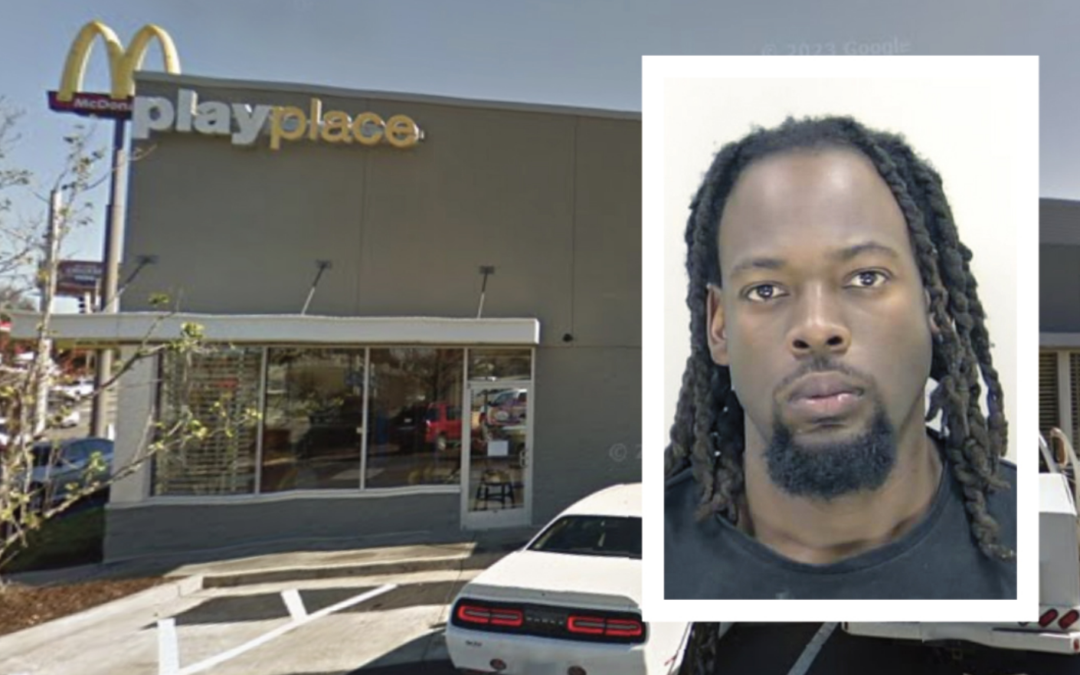The phones at The Augusta Press began ringing early Monday morning, the day after the latest article was published exposing more waste and corruption from the Augusta Land Bank.
Sunday morning readers emailed me and said they nearly choked on their coffee when reading about Land Bank Director Shawn Edward’s penchant for charging his fine dining outings to the taxpayer’s tab.
Readers likely thought about the number of times they and their family had dined out over the past four months and could count the number of occasions on one hand.
People got angry and then they got vocal.
One of the calls that Publisher Joe Edge received was from the Georgia Attorney General’s Office and they were beside themselves. Augusta citizens had been calling that office all morning, hotly demanding the Attorney General investigate.
The Attorney General’s Office asked that The Augusta Press clarify that unless state funds were being used, that they could not get involved unless asked to intervene by Augusta District Attorney Jared Williams.
I have no idea how the AG’s Office determined, within a couple of hours, that state money was not involved; however, it was clear that the office personnel were stunned that one little news article could provoke such outrage.
That is the power of the press.
While the article was published under my byline, I was not the only person involved in its production.
I have two editors. One of my editors, Stephanie Hill, checks primarily for grammar and proper attribution, and she is really good at helping rephrase sentences to give them more impact. My other editor, Debbie van Tuyll, scours my material for perceived bias or possible libel.
“You wrote, ‘he must have felt like’…How do you know how he felt? Did you ask him? You’re making an assumption,” Debbie has told me in the past.
That may sound nitpicky, but it is necessary to provide a straightforward, unbiased newspaper article.
The point is that producing a news article requires much more than one person sitting at a computer and typing. Producing just one story can be very expensive as it costs money to obtain the documents needed and the people involved in the production must be paid.
The cost of producing local news is one of the main factors of why local newspapers are folding all over the nation.
For many, it is a vicious cycle. The papers scale back coverage to counter the costs involved and then lose subscribers, which causes them to make more cuts and lose more subscribers.
Northwestern University’s Medill School produced a report titled, “The State of Local News 2023,” that follows the continued trend of “news deserts.” The report found that across the United States, 204 counties have no local news source at all and 1,562 have only one local publication that is, “invariably a weekly newspaper.”
While you might think these are primarily rural papers, and while most of them are struggling, the withering disease has spread to communities of all sizes. According to the report, roughly 40 newspapers, such as The Augusta Press, have sprung up in the past five years, but these are the exceptions to an alarming trend.
“Most communities that lose a newspaper do not get a replacement — either print, digital or broadcast,” the report said. “Exacerbating the situation, 60% of newspaper journalists — 43,140 — have left the business since 2005 — retired, laid off or severed by corporate owners.”
Many years ago, large hedge firms saw the trend and saw a money making opportunity. These companies bought up local family-owned newspapers and decimated the local news staff, creating what are now being called “ghost newspapers.”
Augusta was once teetering on the edge of becoming a news desert and we are now seeing the effects.
While commission meetings and other public government meetings generally were covered, investigative reporting in Augusta became virtually extinct. Corporate news management no longer saw the value in spending days or weeks to produce one story and reporters feared turning in too many open records request receipts and raising the ire of the bean counters in accounting.
Over time, the politicians and government bureaucrats took notice.
Former Mayor Hardie Davis Jr. knew that no one was monitoring and scrutinizing his office’s bank accounts and he decided to raid the My Brothers Keeper fund. We now know that others took up the mayor’s lead and began going on spending sprees.
Disgraced, and now imprisoned, former commissioner Sammie Sias operated his own love nest in a city-owned community center.
Commissioners began concocting new tax schemes, such as the stormwater fee, and simply gave the TV cameras a good slick sound-bite about how the money would maintain infrastructure, when they knew they would spend the money any darn way they wanted to.
Potholes began to develop all over the city.
Department heads began turning their departments into fiefdoms, where the director became dictator and began ruling with impunity, firing competent staff and replacing them with friends and cronies. As the grass began to grow knee-high in the city cemeteries and public buildings started rotting, the directors couldn’t care less; when people would call 311 and complain, they were ignored.
In fact, a call to 311 usually goes something like this:
“I would like to check on the status of the pothole on Wrightsboro Road that I reported last week.”
“That ticket has been closed sir.”
“But the pothole is still there!”
“Yes, that ticket has been closed, can I help you with anything else today?”
“But the pothole is still there, I’m just wondering if…”
“I’m gonna have to transfer you, hold please.”
CLICK.
The most important role of the news media is to keep the government in check. Without investigative reporters, cities become like medieval towns where cats were banned: the rats multiply and bring with them plague-infested fleas.
It is heartening for me to see, as The Augusta Press reaches its third anniversary, that our readership is involved and vocal. After all, I can write articles all day, but without a readership willing to get involved and speak truth to power, I am just wasting ink; and virtual ink is just as expensive as the liquid stuff.
The success of The Augusta Press is proof that the citizens of Augusta do care about their city and how it is run.
Together, we are making sure Augusta never becomes a news desert again, and the politicians and bureaucrats aren’t lovin’ it.
Scott Hudson is the Senior Investigative Reporter and Editorial Page Editor for The Augusta Press. Reach him at scott@theaugustapress.com











